The years following amputation are critical for recovery, and post-operative prosthetics play a huge role in that journey. These temporary devices are the first tools that help individuals regain movement, strength, and confidence. Over the last decade, post-operative prosthetics have improved with better materials, design, and clinical care. But what’s coming next? By 2030, we’re going to see an entirely new generation of prosthetic care—smarter, more personalized, and far more accessible.
At Robobionics, we are already seeing the direction prosthetics are heading. The next few years will bring changes that not only improve comfort and healing but also change the way prosthetic care is delivered in India and beyond. This article explores the biggest future trends in post-operative prosthetics and how they will transform recovery by 2030.
Smarter Socket Systems That Adjust in Real Time
The socket is the most important part of any prosthetic. It connects the device to the body and must fit perfectly to be effective. A poor fit leads to pain, instability, and even injury. By 2030, socket technology will evolve to become smarter, more adaptive, and easier to manage.
Sockets That Respond to Changes in Limb Shape
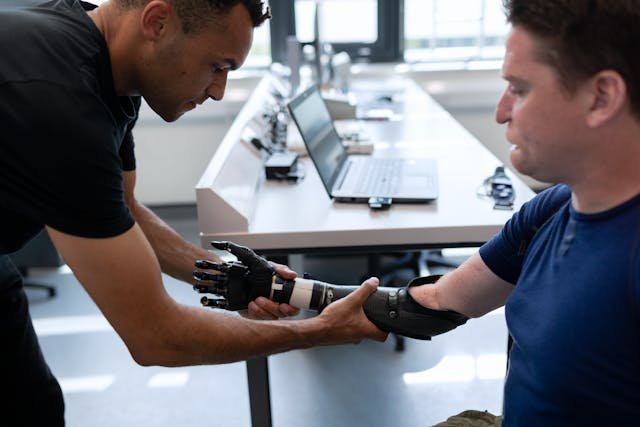
Today, one of the biggest challenges is that the residual limb changes shape during recovery. It shrinks, becomes more defined, and gains muscle tone. This makes it hard to keep a single socket fitting well throughout the post-operative phase. But future sockets will use flexible materials that adapt automatically to small changes in size and shape.
Using responsive materials that soften or tighten depending on limb volume, these sockets will reduce the need for constant refitting. This will make recovery smoother and allow users to wear their prosthetic longer without needing frequent adjustments.
At Robobionics, we’re already testing early versions of adjustable sockets, and we expect these systems to become the norm within the next few years.
Embedded Sensors That Improve Comfort
By 2030, most post-operative sockets will include built-in sensors that track pressure, temperature, and skin condition. These sensors will alert users and clinicians when something needs attention—like when a spot is becoming too tight or if the skin is at risk of irritation.
This kind of feedback allows for faster decisions and less guesswork. Instead of waiting until there’s pain or injury, users will know in real time when to make a change or contact their prosthetist.
At Robobionics, we’re working to integrate these sensors into our early-stage prosthetic care, helping users stay safe without needing to constantly visit the clinic.
Easy Adjustments from Home
A big trend by 2030 will be sockets that adjust using mobile apps or simple tools at home. Users will no longer have to visit a clinic just to tighten or loosen their fit. With remote controls or smart valves, they’ll be able to make changes themselves in real time, with guidance from their care team.
This is especially helpful in areas where travel to a prosthetic center is difficult. Robobionics is building remote adjustment tools into our future designs, giving more control back to users and making care more flexible.
AI-Driven Customization for Faster Recovery
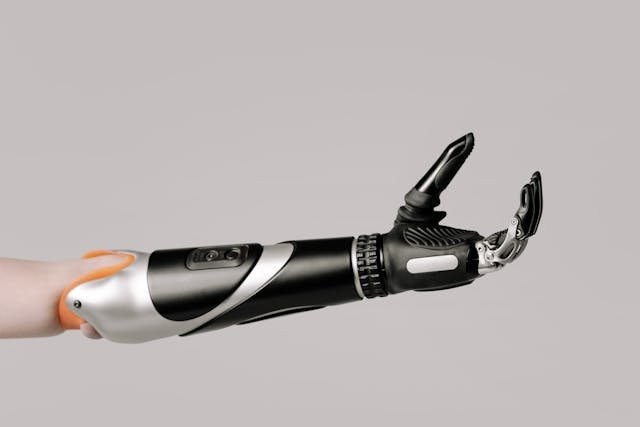
Artificial Intelligence (AI) is changing nearly every area of healthcare, and prosthetics is no different. In the near future, AI will be used to predict healing, personalize socket design, and support faster recovery after surgery.
Personalized Socket Design Based on Healing Patterns
By 2030, AI software will be able to predict how a person’s limb will heal based on medical history, surgical details, and imaging scans. It will use this information to recommend socket shapes and pressure zones that are most likely to support healing and comfort.
This means the first socket a person receives will already be closely matched to how their body will look and feel over the next few weeks. That reduces the need for frequent changes and helps people get moving sooner.
At Robobionics, we are already using limb scanners and digital models to create more accurate fits. With the help of AI, we expect these tools to become even more precise and personalized.
AI That Tracks and Predicts Fit Issues
One of the most exciting future tools is AI that monitors sensor data and predicts problems before they happen. For example, if a person’s walking pattern changes slightly, AI can recognize this as a sign of discomfort and alert the care team before the user even feels pain.
This type of predictive care will allow adjustments to be made quickly, keeping users active and preventing setbacks. It also means fewer emergency visits and faster recovery times.
Robobionics plans to expand its data tracking systems to support this kind of proactive care, so every user gets the right help at the right time.
Smarter Rehabilitation Through Feedback and Coaching
Recovery doesn’t just depend on the prosthetic—it depends on how people use it. AI-powered apps and wearables will guide users through walking, stretching, and strength exercises with real-time feedback. These tools will act like a digital coach, helping users improve their form and avoid mistakes.
By 2030, most post-operative care programs will include this kind of smart rehab. At Robobionics, we’re investing in gamified rehab and AI coaching tools to make home therapy easier, more fun, and more effective.
Lighter, Stronger, and More Sustainable Materials
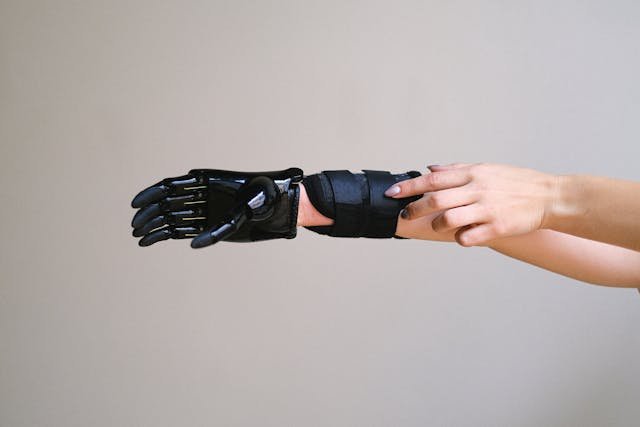
The future of post-operative prosthetics isn’t just about digital technology—it’s also about physical improvements. By 2030, we’ll see a major shift in the materials used to make prosthetic limbs. These changes will make devices lighter, more comfortable, and better for the environment, while still being strong enough for everyday use.
Using Lightweight Materials Without Losing Strength
Many early prosthetic users struggle with heavy devices. A heavy limb can make movement harder, increase fatigue, and cause stress on healing joints. But new materials like carbon composites, smart polymers, and bio-resins are changing that. These materials are much lighter than traditional plastics and metals, but still strong and flexible.
By 2030, most post-operative prosthetics will use these advanced materials as standard. This will help new users move more freely without feeling weighed down, especially during the first weeks of rehab.
At Robobionics, we’ve already begun designing early fit prosthetics using custom 3D-printed parts that are strong yet extremely light. These parts reduce strain on the residual limb while improving balance and ease of use.
Materials That Respond to the Body
Another big development is the use of “responsive” or “smart” materials. These materials adjust to the body’s temperature, pressure, and movement. For example, some liners will soften when warmed by the body, giving a better fit. Others will firm up during activity to offer more support.
These materials help improve comfort without needing to change the socket design. They also reduce pressure spots, which are a major cause of early discomfort and skin issues.
At Robobionics, we’re actively researching liners and soft interfaces that adapt to each user’s skin condition, temperature, and daily activity, to provide a truly personalized wearing experience.
Eco-Friendly Prosthetics That Are Easier to Produce
Sustainability is going to be a big focus in prosthetic manufacturing over the next few years. As more users around the world need prosthetics, the need for eco-conscious materials will grow. By 2030, many post-operative prosthetics will be made from recycled plastics, biodegradable resins, or plant-based polymers.
These materials will not only reduce environmental impact but also make prosthetic production faster and more affordable—especially in countries like India, where access and cost still remain challenges for many families.
Robobionics is proud to support the Make in India initiative by sourcing local materials and using efficient, sustainable processes in our clinics and workshops. We believe the future of prosthetics must be both advanced and responsible.
Tele-Rehabilitation and Remote Fitting Will Redefine Access to Care
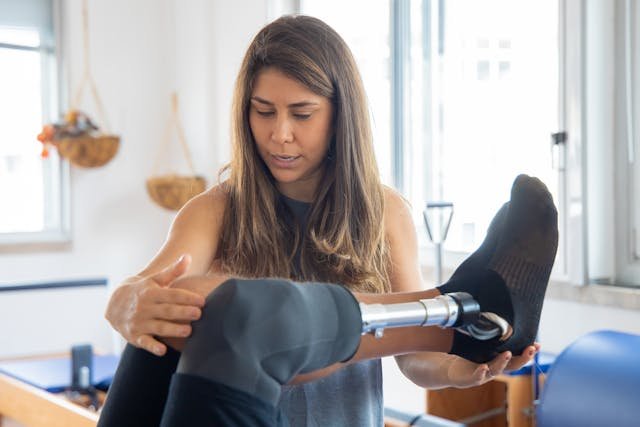
By 2030, recovery after amputation won’t be limited by geography. One of the biggest changes coming to post-operative prosthetic care is the rise of tele-rehabilitation and remote fitting services. These tools are designed to bring expert support directly to the user’s home—no matter where they live. This means faster care, fewer clinic visits, and more consistent recovery for people in both urban and rural settings.
Virtual Fittings That Save Time and Improve Comfort
The fitting process for a prosthetic has traditionally required several in-person visits. Measurements, tests, refits—it’s a hands-on process that takes time. But in the future, virtual fitting tools will allow prosthetists to collect data remotely using mobile scanners or wearable sensors. These tools will send exact limb measurements and user feedback directly to the clinic without needing a physical appointment.
The result is faster socket design, quicker delivery of the device, and fewer delays in getting started with post-operative care. For users recovering at home or in areas without easy clinic access, this will remove a major barrier to progress.
At Robobionics, we are already working on mobile scanning tools that can be used at home with guidance from our team. This ensures no user is left behind—no matter where they live.
Guided Therapy Sessions from Anywhere
Tele-rehabilitation will play a central role in post-operative prosthetic use by 2030. Instead of traveling regularly to a physiotherapy center, users will connect with therapists through video calls, app-based routines, and wearable feedback devices. These tools will allow therapists to see how a person walks, moves, and stands in real time, then offer advice on how to improve.
This will help users maintain regular rehab sessions, even if they are far from a city or recovering at home. It will also allow therapists to monitor progress and provide motivation along the way.
At Robobionics, our gamified rehab tools are already helping users do home exercises more easily. In the coming years, we aim to expand this into full virtual therapy support with real-time tracking and feedback.
Building a National Network of Remote Support
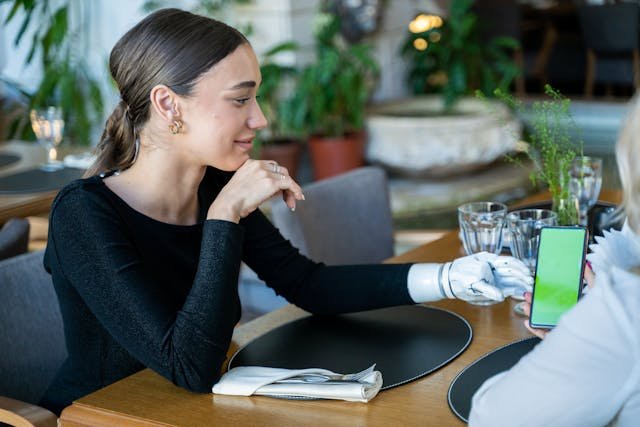
By 2030, the goal isn’t just to have individual users doing rehab from home—it’s to create a full network of care that connects users, therapists, prosthetists, and caregivers from across the country. AI-powered dashboards, cloud-based records, and smart devices will make it possible to share updates, ask questions, and get support at any time.
This system will also help clinics like Robobionics deliver personalized care to thousands of people without losing quality or attention. It will help users feel like they’re part of a team, even if they’re recovering in a remote town or village.
At Robobionics, we’re building these systems now. Because we believe the future of prosthetic care should be accessible, inclusive, and responsive—no matter where your recovery begins.
Emotional Support and AI-Based Counseling Will Be a Core Part of Care
Physical healing is only one part of the recovery journey. After an amputation, emotional strength is just as important. By 2030, emotional care will no longer be seen as separate from prosthetic care—it will be integrated. Thanks to AI tools, peer networks, and virtual counseling, users will receive the mental and emotional support they need from the very first days of post-operative recovery.
AI That Recognizes Emotional Patterns and Offers Support
AI won’t just track movement or limb health—it will also recognize emotional signals. Through regular check-ins, speech patterns, and activity tracking, AI systems will be able to sense changes in mood, anxiety, or motivation. If a user seems discouraged or anxious, the system can offer calming exercises, suggest rest, or notify the care team to check in.
This kind of emotional intelligence in technology helps people feel seen—even when they can’t explain what’s wrong. It also prevents mental health challenges from going unnoticed.
At Robobionics, we are exploring emotional check-in tools that can be built into rehab apps. This ensures users feel supported not just physically, but mentally too.
Peer Networks That Offer Real Stories and Motivation
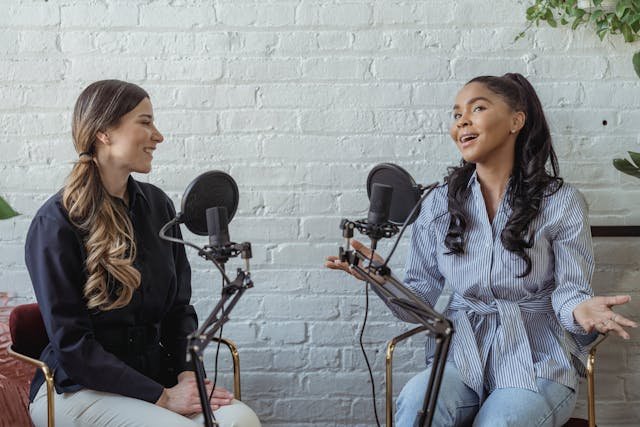
Sometimes, the best support comes from someone who’s been through the same thing. By 2030, digital platforms will make it easy for new users to connect with experienced prosthetic users. These peer mentors can offer tips, encouragement, and real stories that inspire hope during difficult moments.
This kind of community is especially helpful during the early days, when many users feel isolated or overwhelmed. Knowing that others have made it through builds courage and motivation to keep going.
At Robobionics, we already connect our users with mentor networks and plan to expand this into an India-wide digital community where recovery stories and practical advice are always just a click away.
Counseling That Fits Into Daily Life
Professional counseling will also become more accessible through on-demand platforms. Users will be able to schedule short sessions, receive motivational messages, or even access therapy-based routines directly through their phones. These tools will make emotional care feel normal, everyday, and stigma-free.
By making emotional wellness a core part of post-operative prosthetic care, we ensure that healing is not just about standing again—it’s about standing stronger, in every way.
At Robobionics, our vision includes building whole-person care. We’re not just here to give someone a limb—we’re here to walk with them through their full journey.
Conclusion
By 2030, post-operative prosthetics will be smarter, lighter, more responsive, and deeply connected to the user’s daily life. From AI-powered socket fittings and flexible materials to remote rehabilitation and emotional support, the future of recovery is not just more advanced—it’s more human.
What makes this change so exciting is that it’s not far away. These trends are already beginning to shape how people across India experience their first steps after amputation. And at Robobionics, we’re proud to be leading that transformation.
We believe that everyone deserves a recovery process that is personal, empowering, and full of potential. That’s why we are designing prosthetic care that listens, adapts, and grows with each person—not just until they walk, but long after they’ve found their strength again.
If you’re preparing for recovery or want to know more about how future-ready prosthetic care can change your journey, reach out to Robobionics today.



